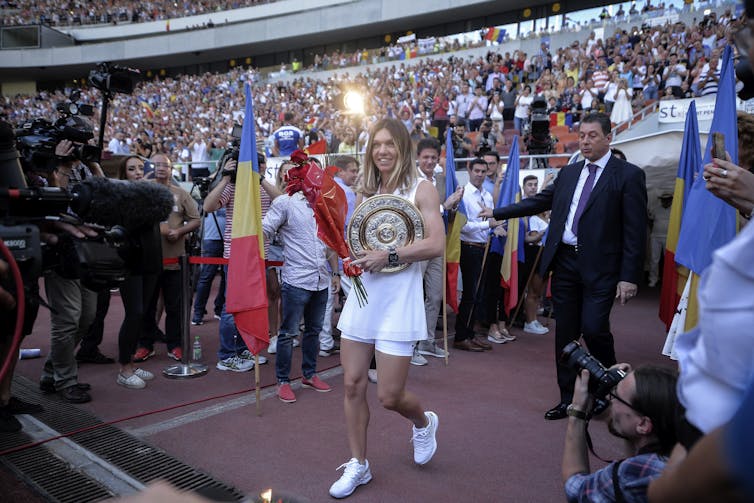Thank you https://mainichi.jp/english/articles/20210416/p2g/00m/0sp/034000c
TOKYO (Kyodo) -- Japanese Foreign Minister Toshimitsu Motegi backpedaled on a previous pledge to cooperate in making the Beijing Winter Olympics a success during a telephone call with his Chinese counterpart Wang Yi earlier this month, government sources said Thursday.
The change in stance comes as the United States and other countries have stepped up criticism of China's alleged human rights abuses of the Uyghur Muslim minority in its far-western Xinjiang region.
During a call with Motegi on April 5, Wang requested that China and Japan "mutually support" each other in the hosting of the Summer Games in Tokyo this year and the 2022 Winter Olympics and Paralympics in Beijing, according to the sources.
Motegi responded that he hopes next year's Beijing Winter Games "would be a festival of peace in accordance with the Olympic and Paralympic principles," the sources said.
Japan's moderated statement is aimed at preparing for how the international community will respond to the human rights issue and the possibility of a boycott, the sources added.
The Olympic Charter stipulates that there should be no discrimination based on religion, national origin, or of any kind.
The Japanese Foreign Ministry did not release the remarks made by the two ministers regarding both sporting events during the call, but in terms of the Tokyo Games, Motegi said Japan would do everything in its power to ensure its success.
When Prime Minister Yoshihide Suga and Motegi met with Wang in Japan last November, the Japanese government stated the countries had agreed to cooperate to make both the upcoming Summer and Winter Games a success.
But criticism of China's alleged human rights abuses of Muslim Uyghurs has been growing in the international community, with British Foreign Secretary Dominic Raab reportedly suggesting last fall that a boycott of the Beijing Olympics was a possibility.
Earlier this month, a U.S. State Department spokesman hinted that the United States was discussing a joint boycott of the Beijing Olympics with allies.
But a senior department official later denied the rumors, saying, "Our position on the 2022 Olympics has not changed. We have not discussed and are not discussing any joint boycott with allies and partners."
TOKYO (Kyodo) -- Japanese Foreign Minister Toshimitsu Motegi backpedaled on a previous pledge to cooperate in making the Beijing Winter Olympics a success during a telephone call with his Chinese counterpart Wang Yi earlier this month, government sources said Thursday.
The change in stance comes as the United States and other countries have stepped up criticism of China's alleged human rights abuses of the Uyghur Muslim minority in its far-western Xinjiang region.
During a call with Motegi on April 5, Wang requested that China and Japan "mutually support" each other in the hosting of the Summer Games in Tokyo this year and the 2022 Winter Olympics and Paralympics in Beijing, according to the sources.
Motegi responded that he hopes next year's Beijing Winter Games "would be a festival of peace in accordance with the Olympic and Paralympic principles," the sources said.
Japan's moderated statement is aimed at preparing for how the international community will respond to the human rights issue and the possibility of a boycott, the sources added.
The Olympic Charter stipulates that there should be no discrimination based on religion, national origin, or of any kind.
The Japanese Foreign Ministry did not release the remarks made by the two ministers regarding both sporting events during the call, but in terms of the Tokyo Games, Motegi said Japan would do everything in its power to ensure its success.
When Prime Minister Yoshihide Suga and Motegi met with Wang in Japan last November, the Japanese government stated the countries had agreed to cooperate to make both the upcoming Summer and Winter Games a success.
But criticism of China's alleged human rights abuses of Muslim Uyghurs has been growing in the international community, with British Foreign Secretary Dominic Raab reportedly suggesting last fall that a boycott of the Beijing Olympics was a possibility.
Earlier this month, a U.S. State Department spokesman hinted that the United States was discussing a joint boycott of the Beijing Olympics with allies.



